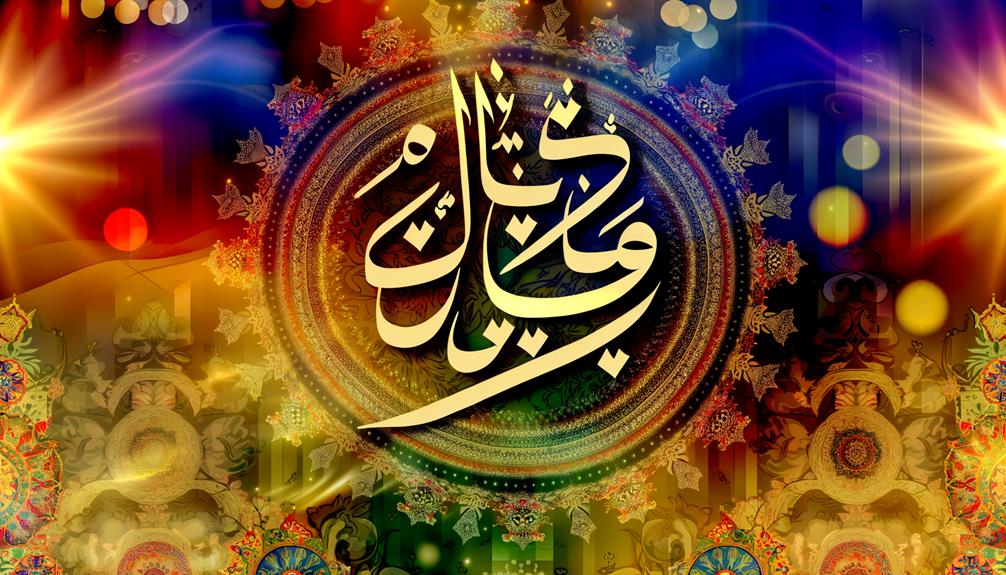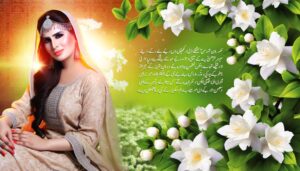Usman Name Meaning in Urdu
Usman, written as عثمان in Urdu, has deep Arabic roots and rich cultural significance. The name originates from 'Uthman', meaning 'baby bustard', and symbolizes beauty and heritage.
It's prominently associated with Uthman ibn Affan, the third Caliph in Islam, known for his piety, generosity, and vital role in compiling the Quran. The name reflects strength, leadership, and honor, making it a popular choice in modern times.
Usman resonates deeply in Urdu literature, embodying cultural values like bravery and wisdom. To understand more about its historical weight and modern relevance, there's still much to explore.

Key Takeaways
- Usman (عثمان) means 'baby bustard' in Urdu, derived from the Arabic word 'Uthman.'
- The name Usman is historically significant due to Uthman ibn Affan, the third Caliph in Islam.
- Usman reflects qualities of leadership, generosity, piety, and administrative skill.
- The name is popular in Pakistan and symbolizes strength, heritage, and cultural values.
- Usman is increasingly used in modern times, blending traditional roots with contemporary appeal.
Etymology of Usman
The name Usman originates from Arabic and has deep historical and cultural significance in Islamic tradition.
You'll find that the name is derived from the Arabic word 'Uthman,' meaning “baby bustard,” a type of bird that's considered noble.
In Urdu, it's written as عثمان, reflecting its phonetic beauty. Understanding the etymology helps you appreciate the name's richness.
It's not just a name; it's a bridge connecting you to a significant heritage. When you name someone Usman, you're bestowing a legacy of nobility and grace.
This name also resonates deeply within the Islamic community, symbolizing strength and virtue.
Historical Significance
Rooted in Islamic history, Usman holds a place of profound reverence, particularly due to the legacy of Uthman ibn Affan, the third Caliph in Islam. His contributions have shaped the Muslim world in several key ways. Here are three significant aspects:
- Compilation of the Quran: Under his leadership, the Quran was compiled into a single, standardized text, ensuring its preservation and uniformity.
- Expansion of the Islamic Empire: His caliphate saw significant territorial expansions, spreading Islamic influence far and wide.
- Administrative Reforms: Uthman introduced important administrative reforms that improved governance and stability.
Understanding these points helps you appreciate why the name Usman carries such historical weight and respect. It's not just a name; it's a legacy of leadership and faith.
Usman in Islamic History
Often revered in Islamic history, Usman ibn Affan's legacy is a reflection of his unwavering commitment to the faith and the community. As the third Caliph, Usman played a pivotal role in the compilation of the Quran, ensuring its preservation for future generations. His leadership saw the expansion of the Islamic empire, bringing prosperity and stability. Usman's generosity and piety earned him deep respect among Muslims. His tenure was marked by significant administrative reforms, enhancing the efficiency of governance.
| Aspect | Details |
|---|---|
| Role | Third Caliph of Islam |
| Contribution | Compilation of the Quran |
| Leadership | Expansion of the Islamic empire |
| Characteristics | Generosity, piety, administrative skill |
| Legacy | Respected figure in Islamic history |
Understanding Usman's life helps to appreciate his crucial contributions to Islam.
Cultural Impact
When you explore the cultural impact of the name Usman in Pakistan, you'll see its historical significance reflected in countless families and communities.
The name's influence extends to modern times, with parents often choosing it for its strong, positive connotations.
Additionally, Usman has left its mark on literature, symbolizing bravery and wisdom in many stories and poems.
Historical Significance in Pakistan
The name Usman holds a deep historical significance in Pakistan, symbolizing both a rich cultural heritage and a legacy of influential personalities who've shaped the nation's history.
You'll find that the name Usman is revered due to:
- Historical Leaders: Usman, the third Caliph of Islam, is highly respected, embodying principles of justice and leadership.
- Cultural Icons: Usman Peerzada, a celebrated actor and playwright, has made notable contributions to Pakistani arts and entertainment.
- Political Figures: Usman Buzdar, the Chief Minister of Punjab, plays an essential role in the current political landscape.
Understanding these figures helps you appreciate the name's profound impact and enduring presence in Pakistani culture.
Influence on Modern Names
You'll notice that the name Usman continues to be a popular choice for newborns in Pakistan, reflecting its enduring cultural resonance and the admiration for its historical and contemporary bearers.
In modern times, the name symbolizes strength, leadership, and a rich heritage. Parents often choose Usman not just for its beautiful sound, but for its connection to significant figures in Islamic history, including the third Caliph, Usman ibn Affan.
This choice is a nod to cultural pride and the values of wisdom and nobility. By naming their children Usman, families secure these virtues and traditions remain alive, influencing future generations with a sense of identity and continuity.
This cultural impact makes Usman a timeless and respected name.
Symbolism in Literature
In literature, Usman often embodies the virtues of strength and leadership, acting as a symbolic representation of cultural heritage and the enduring legacy of Islamic history. When you encounter characters named Usman, they usually exemplify:
- Resilience – Overcoming obstacles with unwavering determination.
- Wisdom – Offering guidance grounded in deep cultural and historical knowledge.
- Honor – Upholding ethical standards and moral integrity.
These traits not only enrich the narrative but also connect you to a broader cultural context. Usman's presence in stories can evoke a sense of pride and continuity, reminding readers of the historical figures who've shaped Islamic civilization. Understanding this symbolism helps you appreciate the layers of meaning in the literature you engage with, fostering a deeper connection to the text.
Popularity in Modern Times
Usman has surged in popularity in recent years, reflecting a renewed interest in traditional names with deep cultural significance. You'll find the name Usman appearing more frequently in birth announcements and social media profiles.
This rise isn't just a trend; it's a nod to heritage and identity. Parents are choosing Usman to honor historical and religious figures, ensuring that the name carries weight and respect.
Additionally, the name's strong, melodic sound appeals to modern sensibilities, making it versatile across different cultures. You might even notice celebrities and public figures opting for Usman, further boosting its popularity.
Ultimately, selecting Usman signifies a blend of tradition and contemporary appeal, resonating with many in today's global community.
Usman in Urdu Literature
You'll find the name Usman woven into the rich tapestry of Urdu literature, from historical references in classical poetry to significant roles in modern fiction.
It often symbolizes nobility and wisdom, reflecting cultural values that have endured for generations.
Historical References in Poetry
Countless Urdu poets have woven the name Usman into their verses, enriching the tapestry of their literary works with historical and cultural depth. When you explore these poems, you'll find that the name Usman often evokes:
- Historical Legacy: Usman Ghani, the third Caliph, is frequently referenced, symbolizing justice and leadership.
- Cultural Significance: The name embodies traditional values and virtues, making it a rich subject for poets.
- Emotional Resonance: Usman's character is sometimes portrayed with deep emotions, illustrating themes of love, loss, and faith.
Usman in Modern Fiction
In modern Urdu literature, the character of Usman often serves as a bridge between traditional values and contemporary societal challenges. You'll find Usman depicted as a resilient figure, maneuvering the complexities of modernity while staying true to his cultural roots. Through his journey, you see the juxtaposition of old and new, making him a relatable and dynamic character for readers.
| Aspect | Traditional Values | Contemporary Challenges |
|---|---|---|
| Family | Respect for elders | Balancing work and home life |
| Career | Legacy professions | Adapting to new job markets |
| Identity | Cultural heritage | Global influences |
Such portrayals enrich Urdu literature, making Usman's character an essential part of its modern narrative landscape.
Symbolism and Cultural Impact
As you explore Usman's character further, you'll notice how his symbolic presence in Urdu literature reflects deep cultural values and societal nuances. Usman often embodies bravery and honor. Usman is frequently portrayed as a paragon of courage and integrity, echoing historical figures and their valor.
Wisdom and Leadership are also integral aspects of Usman's character. His character often takes on roles of guidance, showcasing the importance of wisdom in maneuvering life's complexities.
In addition, Usman embodies resilience and faith. His unwavering faith and resilience in adversity serve as inspirations, mirroring the cultural emphasis on spiritual strength.
This multifaceted symbolism highlights the richness of Urdu literature, offering you a lens into the societal ideals and perennial values cherished in the culture. Understanding Usman's role can deepen your appreciation for these literary works and their cultural significance.
Conclusion
So, when you hear the name Usman, you're not just encountering a word; you're diving into a rich tapestry of history, culture, and meaning, especially in Urdu.
This name has roots that stretch back to significant Islamic figures and still holds an enduring charm today. Isn't it fascinating how a single name can carry such depth and resonance?
Next time you meet an Usman, you'll appreciate the profound legacy behind it.






